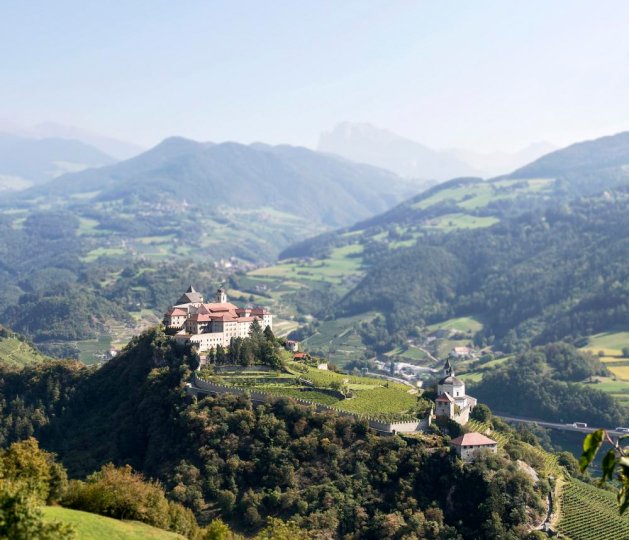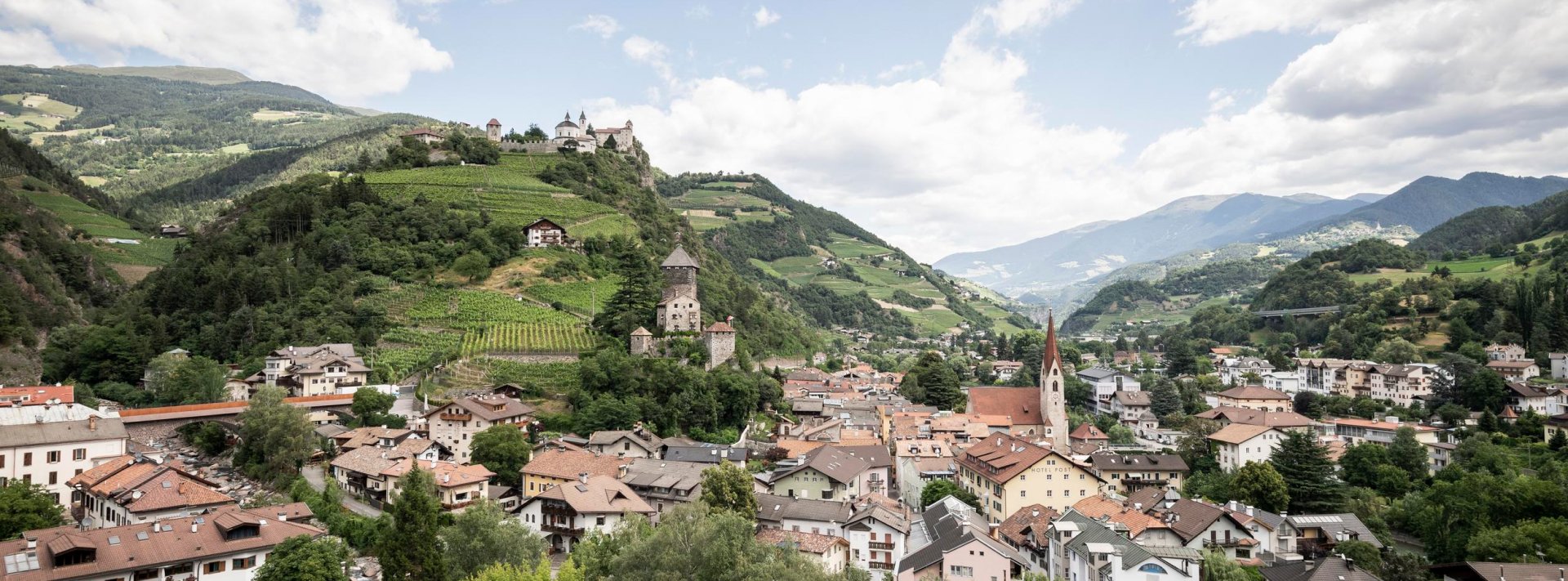Chiusa and surroundings
Historic charm and South Tyrolean hospitality
Chiusa, the small but beautiful medieval town in the southern Isarco Valley, is the centerpiece of South Tyrol. Surrounded by chestnut groves and vineyards on sunny slopes, steeped in culture and history, it is one of the most popular and varied holiday destinations in South Tyrol.
Dense forests, alpine pastures and rocky peaks, pretty villages with pointed church towers as well as ancient gray castles and widely scattered mountain farms characterize this unmistakable landscape. The Sarentino Alps on one side and the view of the Dolomites on the other side of the valley are the natural backdrop to this unique town and its surroundings.
Romantic Chiusa, with its picturesque alleyways and pretty façades, was already welcoming travelers on the post road from the Brennero Pass to the south in the early Middle Ages. This gem increasingly became a favorite haunt of artists and poets, as well as Albrecht Dürer, who dedicated a portrait to the town in 1494.
The flair of this town lies in its modest size, its unspoken elegance and its timeless appeal.
A holiday in Chiusa and its surroundings is a journey through time with many pleasant surprises.

Facts and figures
The Romans built an ancient road through the Isarco Valley, which led from Verona over the Brenner Pass to the German city of Augsburg. Chiusa was located on this important trade route and developed into an important junction.
In the Middle Ages, Chiusa, then known by its German name “Klausen”, was a flourishing trading town. The town was surrounded by a city wall, parts of which are still preserved today.
The imposing Sabiona Fortress, also known as Sabiona Monastery, towers high above Chiusa. The monastery has been an important religious center and houses a valuable collection of religious works of art.
In the 19th century, Chiusa attracted artists from all over Europe who were drawn to the picturesque landscape and alpine atmosphere. The artists’ colony of Chiusa contributed to the development of tourism in the region and had a strong influence on the local art scene. Today, the old town center is home to art galleries and traditional craft shops.
During the Second World War, Chiusa was bombed by the allies, causing severe damage to parts of the old town center. After the war, Chiusa was rebuilt and developed into a popular tourist destination.
Chiusa is located in a region known for its viticulture. The surrounding vineyards produce high-quality wines, including well-known varieties such as Vernatsch, Lagrein and the “newer” Isarco Valley white wines. Wine lovers can enjoy wine tastings at the local wineries and learn more about viticulture in the region.







